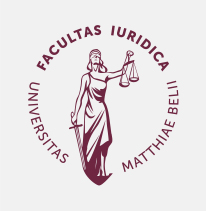Cookie settings
When you visit any website, that website may store or retrieve information about your browser, especially in the form of cookies. This information may relate to you, your preferences, your device, or it can be used to make the site work as you expect. This information usually doesn't identify you directly, but it allows you to get more personalized online content. In these settings, you can choose not to allow certain types of cookies. Click on the category headings to learn more and change your default settings. However, you should be aware that blocking certain cookies may affect your experience with the site and the services we may offer you.More info
Manage cookie settings
Necessary cookies
Always active
These cookies are necessary to ensure the functionality of the website and cannot be turned off in our systems. They are usually set up only in response to activities you perform that constitute a service-related request, such as setting privacy preferences, signing in, or filling out forms. You can set your browser to block or alert you to such cookies, in which case some parts of the site may not work.
Performance cookies
These cookies allow us to determine the number of visits and traffic sources so that we can measure and improve the performance of our site. They help us identify which sites are the most and least popular, and see how many visitors are moving around the site. All information that these cookies collect is aggregated and therefore anonymous. If you do not enable these cookies, we will not know when you visited our site.
- Faculty
- Departments
- Department of Civil Law
- Department of Labour Law and Social Security Law
- Department of Commercial and Economic Law
- Department of History of State and Law
- Department of Theory of State and Law
- Department of Penal Law, Criminology, Criminalistics and Forensic Sciences
- Department of Financial and Administrative Law
- Department of Constitutional Law
- Department of International, European Law and Legal Communication
- Study
- Applicants
- Science and research
- International Relations
- Contact

Admission requirements for academic year 2022/2023
Application deadlines
By 30 April 2022 – Bachelor's Degree Study (Full-Time and Part-Time Study)
By 30 June 2022 – Master's Degree Study (Full-Time and Part-Time Study)
By 31 May 2022 – Doctoral Degree Study (Full-Time and Part-Time Study)
In academic year 2022/2023, the Law Faculty of UMB in Banská Bystrica offers:
Bachelor's Degree Study in the study programme LAW (Full-Time and Part-Time Study)
Master's Degree Study in the study programme LAW (Full-Time and Part-Time Study)
Doctoral Degree Study in the study programme COMMERCIAL AND FINANCIAL LAW (Full-Time and Part-Time Study)
Doctoral Degree Study in the study programme CRIMINAL LAW (Full-Time and Part-Time Study)
Doctoral Degree Study in the study programme CIVIL LAW (Full-Time and Part-Time Study)
More detailed information on the possibilities and conditions of admission to individual levels/degrees of university studies at the Faculty of Law of Matej Bel University in Banská Bystrica for the academic year 2022/2023 can be found in the annexes below.
The admission procedure for BACHELOR´s Degree Study (Full-Time and Part-Time Study) will be based on a duly filed application without an entrance examination.

